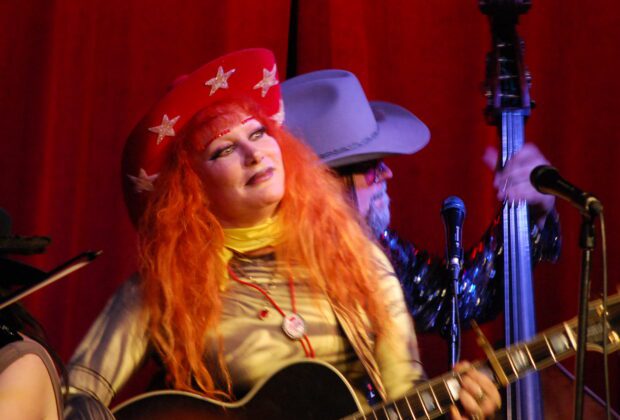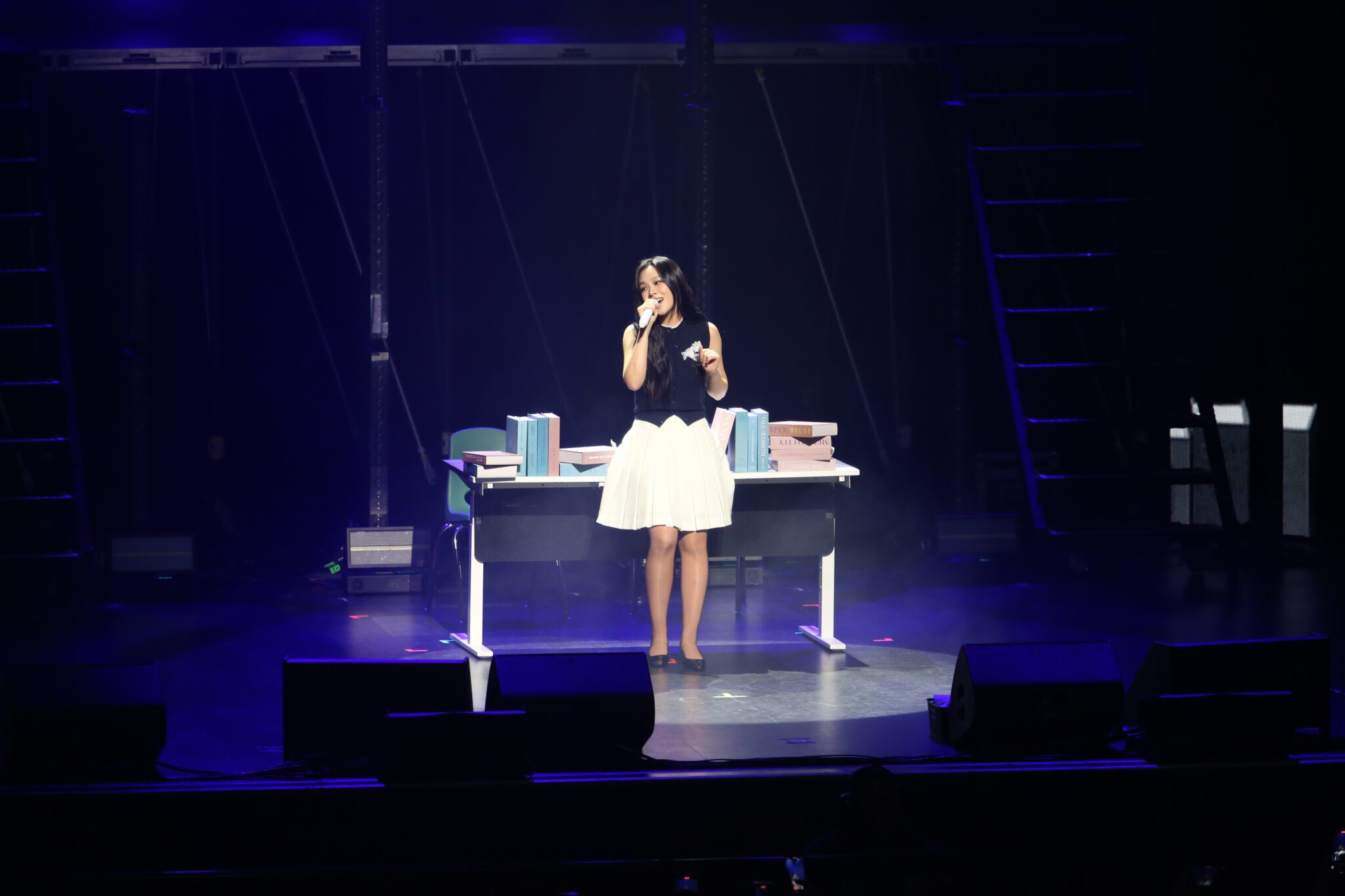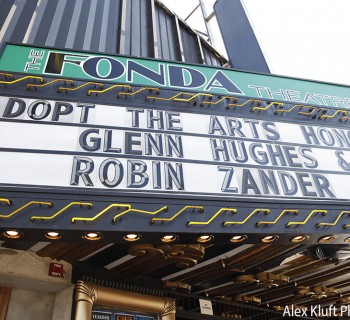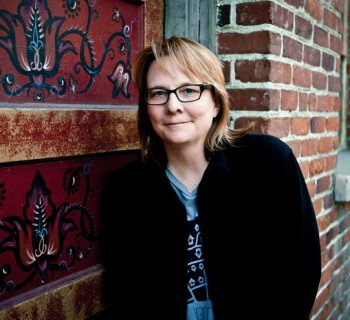Hotel Cafe Los Angeles, CA
Contact: ever@tinyhuman.com
Web: rubyfriedmanorchestra.com
Players: Ruby Friedman, vocals, guitar; Ulf Bjorlin, trombone; Fernando Perdomo, guitar; Ben Landsverk, upright bass; Steven Williams, drums; Kaitlin Wolfberg, violin; Bobby Victor, keys
There was a real buzz in Hollywood for the Ruby Friedman Orchestra’s show on the Hotel Café’s Main Stage. Not a gentle hum, but a tangible, practically audible buzz. It felt like the sweet room was filled wall-to-wall with musicians and those in the know. Genuine music lovers who are well aware of the fact that Friedman is an artist deserving of a lot more attention that she generally gets. She’s a star, in the shadows. A secret that needs to be yelled out full-voice. She’s also quite magnificent.
Friedman’s new album, Chimes After Midnight, is her first since 2016’s Gem. She acknowledged the nine-year gap at the Hotel Café on this gorgeous evening in June. Things needed straightening—life can get difficult sometimes. Whatever the cause, we can now hold Chimes After Midnight in our hands.
It's been worth the wait. The album showcases Friedman’s alt-Americana beautifully. That’s alt-Americana on a number of levels, by the way. Musically, Friedman sets the listener on a path that feels familiar and comfortable, and then shakes that path like it’s an Etch A Sketch. She and her band are decked out in bejeweled country and western outfits. Then the music starts, and your attention shifts.
There’s a Lynch-ian quality to Friedman that is fascinating. You can imagine her performing in one of that director’s nightclub scenes, with all manner of reprobates and miscreants dancing in front of a velvet curtain. That’s the line that she slides along—the intersection of mainstream America and its dark underbelly.
The songs are magnificent, with those from the new album really standing out. “Milky Way” is an ode to Pixies man Frank Black, and that makes sense too, when considering Black’s gift for interpreting his observations in unique ways.
“Flower Whore,” with lines like, “Why do you keep bringing up my pain and all that’s buried,” is devastatingly beautiful. It’s not unusual for great art to emerge from pain, but Friedman's gift is in the repurposing. These are her experiences, and she’ll do whatever the fuck she wants to with them.













